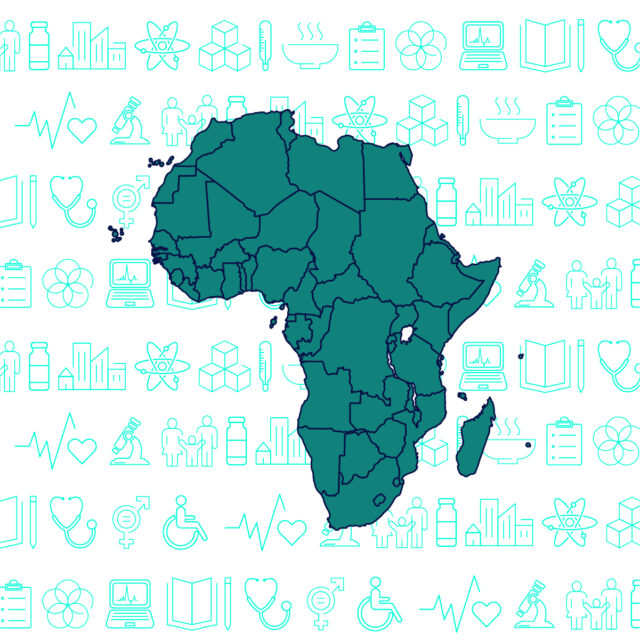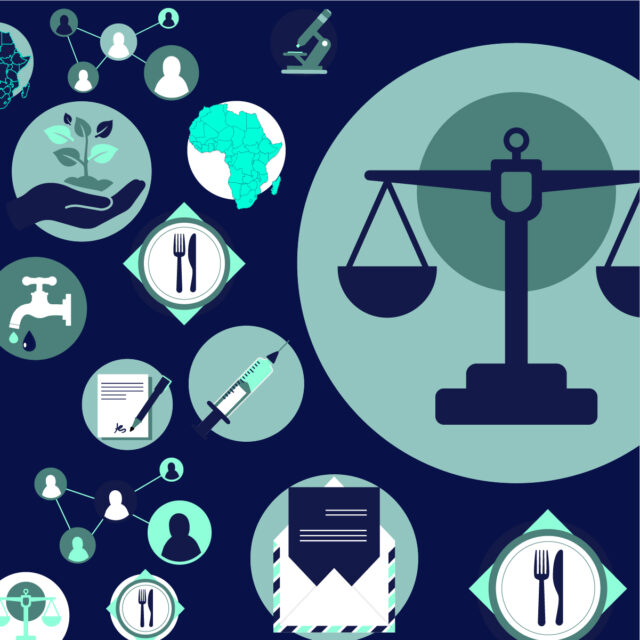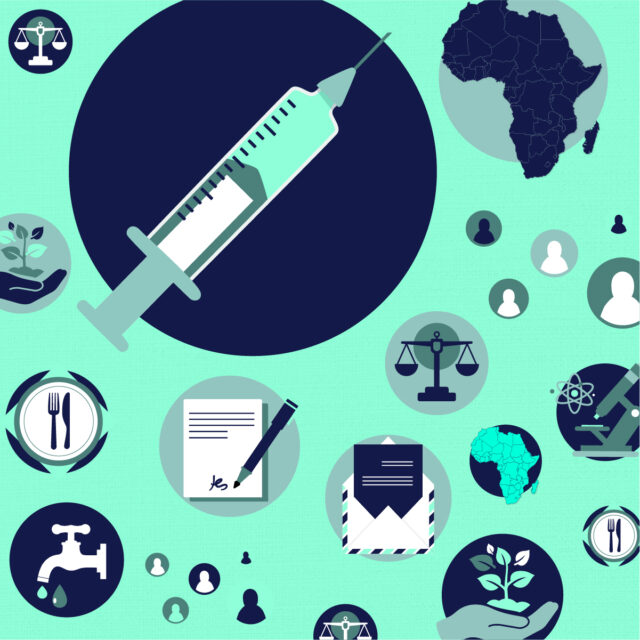A roundup of the latest news, stats, and analysis of COVID-19’s impact in Africa. View our data tracker and sign up for our weekly newsletter. This week G7 leaders meet in Germany to address the converging crises of COVID-19, climate change, and conflict. Spoiler alert: You can’t deal with one while ignoring the others.
Top news
Marshalling plans: G7 leaders have signalled their long-term support to Ukraine, with UK Prime Minister Boris Johnson expressing hope that progress can be made against Russia’s blockade of Ukrainian wheat. Twenty million tonnes of grain are trapped in Ukraine’s grain silos, while 49 million people are facing starvation and wheat supplies are set to decline further. German Chancellor Olaf Scholz invited President Volodymyr Zelensky to attend the G7 Summit, with the aim of agreeing to what a “Marshall Plan” for Ukraine could look like.
1 in 60 seconds: One child is pushed into severe malnutrition every minute in 15 crisis-hit countries, 12 of which are in Africa. Experts at UNICEF point to the combined impacts of conflict, climate change and COVID-19, emphasizing the role of micronutrient deployment in combating wasting among children. Experts are also calling for cooperation and coordination with tangible actions to back the G7 Global Food Alliance, including fully funding the World Food Programme.
Moving backwards: The pandemic decreased global life expectancy by 1.64 years between 2019 and 2021 – the first global decline since 1950. In the US, there was a decline of 2.41 years. The food security and climate crises could worsen this trend. And it’s not the only reversal we should be worried about. In 2015, the G7 committed to lift 500 million people out of hunger by 2030. But now, G7 funding has flatlined, and even before Russia’s invasion of Ukraine, 153 million more people were undernourished.
A global failure: Less than 19% of Africa’s population is fully vaccinated against COVID – falling dramatically short of the 70% target agreed to at last year’s G7 Summit. With many low-income countries so far off target, some are calling for a shift to focus on health workers and those at the highest risk of severe illness. The pandemic’s disruptions to routine vaccination also caused a rise in preventable diseases, and it compounded the structural issues driving a healthcare worker shortage in Africa. Now polio is in the UK for the first time in 40 years. Experts want the G7 to shift to a preparation and prevention approach to avoid repeating the current unequal and nationalistic responses.
Cost of living: 6 out of 10 of the toughest places in the world to feed a family are in Africa, according to ONE’s new analysis. We integrated real time data on food consumption and inflation with government capacity to respond, among other factors. In Somalia, 71% of the population has insufficient food consumption, with only $1 in fiscal reserves per capita to respond to crises. Among the 10 toughest countries, debt servicing averaged 14% of government spending. If the G7 recycles $100 billion of the IMF’s Special Drawing Rights, governments could have more fiscal space to respond. But so far, just $60 billion has been pledged, and none of the $36 billion committed by G7 countries has been delivered.
Heated conflicts: Prolonged increases in temperature and precipitation may have a five-fold impact on the outbreak of conflict in African countries, even for populations outside of the climate-affected area. The phenomenon is driven in part by food shortages due to drought, and underscores the need to coordinate climate adaptation strategies with peacekeeping efforts. Yet climate funding for least developed countries, many of which are affected by conflict, continues to lag behind.
The numbers
- 90%: The portion of Somalia facing extreme drought.
- 1 in 10: The number of people in the world who are undernourished.
- $0: The amount of SDRs pledged by G7 countries that have actually been delivered.
- Less than 19%: The amount of Africa’s population that is fully vaccinated, well below the 70% global target.
From the ONE team
- ONE’s CEO Gayle Smith calls on G7 leaders to act fast on COVID-19, conflict and climate change.
- ONE correspondent Mapi Mhlangu analyses the toll of Russia’s war in Ukraine on South Africa.
- ONE’s Africa Executive Director Edwin Ikhuoria breaks down what’s behind vaccine hesitancy in Africa.
- Has the G7 delivered on its promises to African countries? Check out ONE’s new analysis. We also launched our index on the 10 toughest places to feed a family, and delivered new analysis on COVID-19’s negative impact on global life expectancy.
More reads
- The Ukraine War is Giving Europe a Chance to Reset Ties With Africa (All Africa)
- Should we trust the credibility of ODA statistics? (Financial Times)
- The transformative impact of the Sustainable Development Goals may be lower than hoped. (Nature)
- The former presidents of Liberia and Nigeria lay out the three key components to deal with Russia’s war and curb its impact on Africa. (The Economist)
- Kenya’s COVID-19 cases have increased by 92% in the last month, signalling a sixth wave. (Bloomberg)



